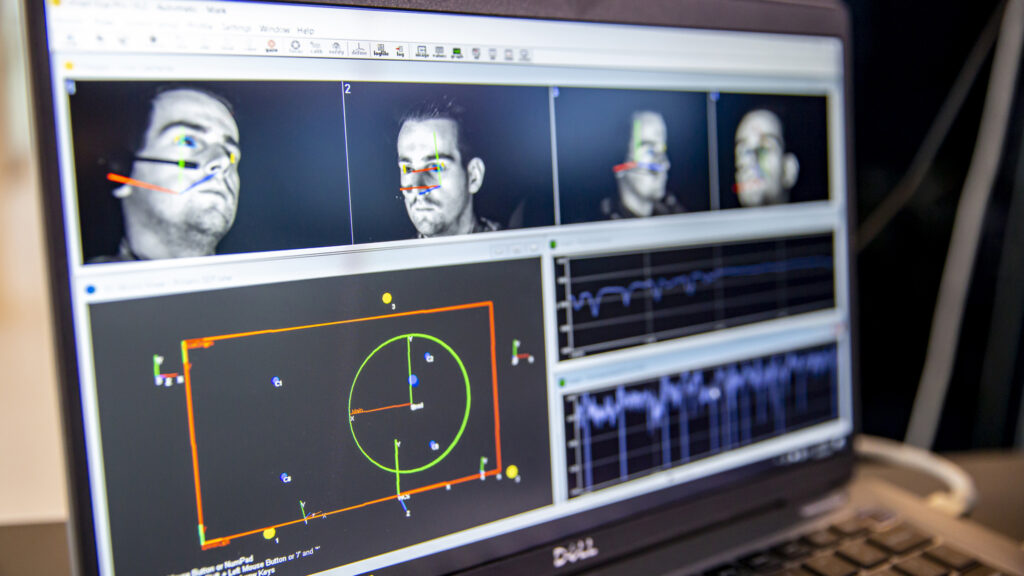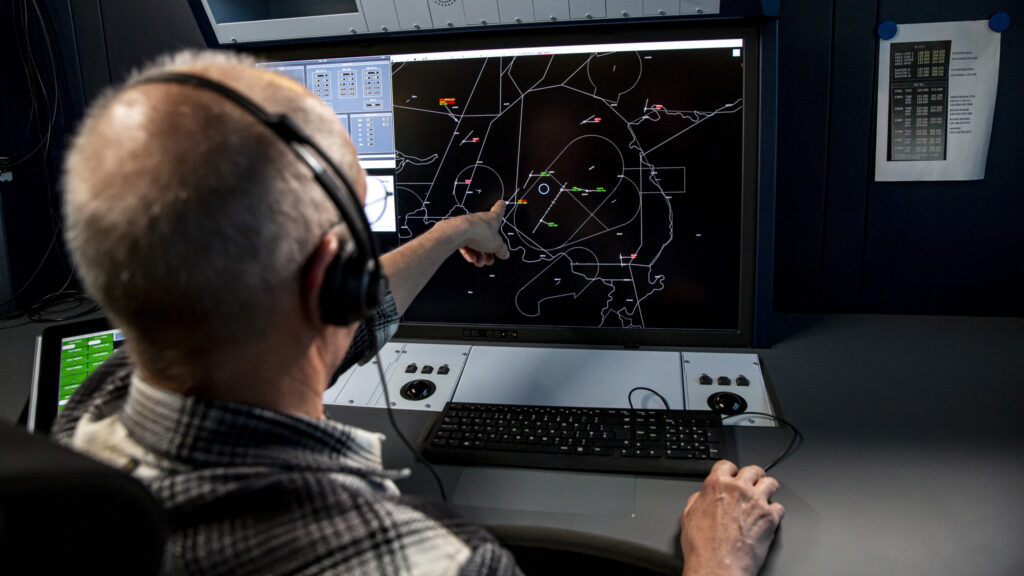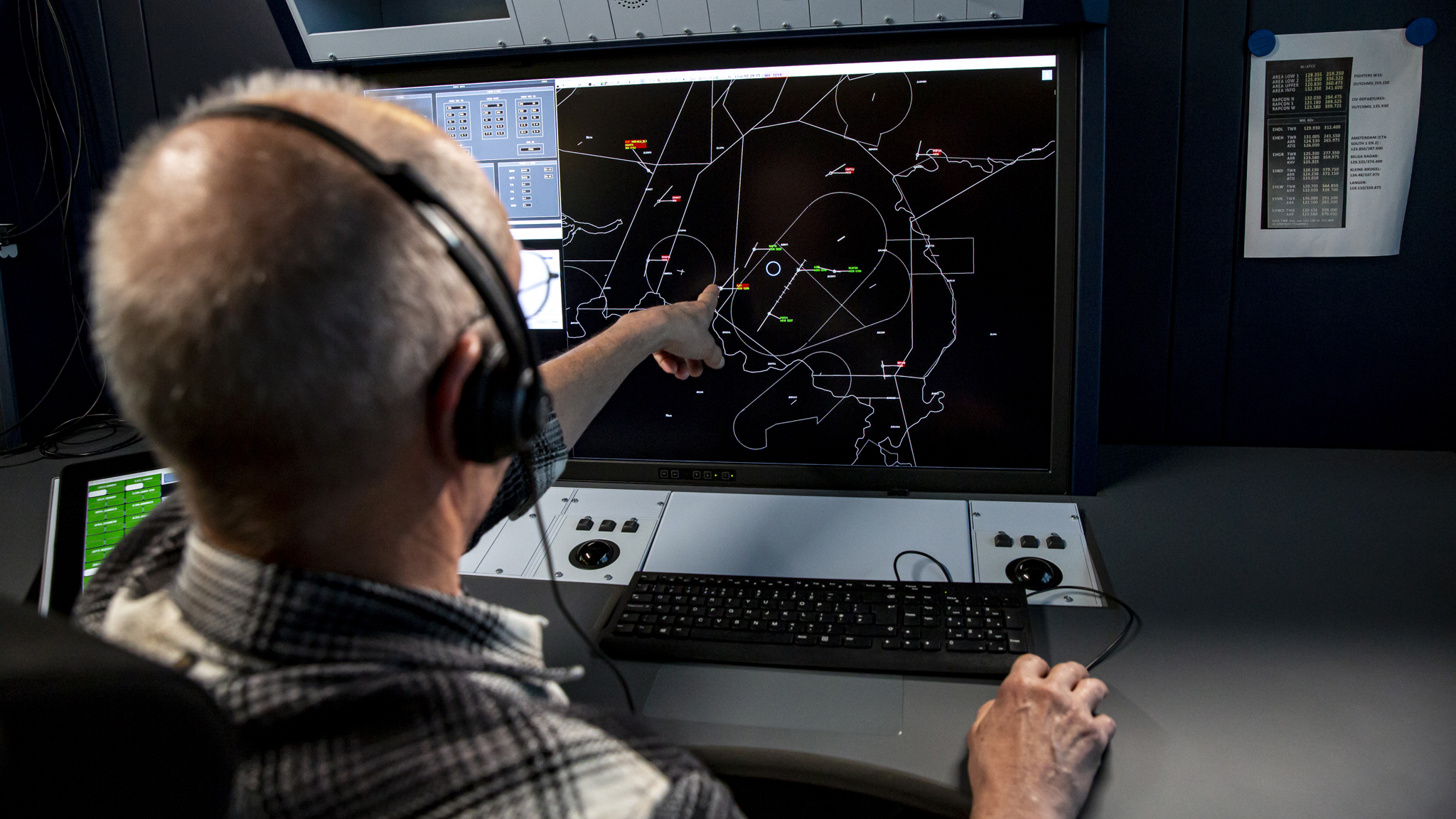(Military) air traffic controllers must be able to solve complex tasks in a fraction of a second. Conflict resolution time is critical to maintaining a safe situation for all aircraft flying in ‘their’ airspace. Not everyone is suitable for this role as it requires being focused for an extended period of time. Only a few make it to the coveted tower and as radar air traffic controllers.
According to Wim Bos, radar instructor MilATCC (Military Air Traffic Control Centre) the training and selection procedure is an intense process. For the trainees as well as for the instructors. “Training a pre-selected, small group of controllers per year requires an enormous investment of time and energy. To manage this effectively, we would like to adopt a different approach that allows us to train people adequately and preferably more quickly.”

Holistic approach
The project INSPECT, which stands for ‘Instructor Support for Performance based Training’, began in January last year and aims to enhance the training of military air traffic controllers. Performance based training (PBT), is an efficient and effective learner centred approach that trains people to achieve their pre-determined objectives by analysing the job performance. It is a holistic training approach where training concepts, technologies, and data science are seamlessly integrated.
The INSPECT project adds value to PBT by transforming gathered data into actionable insights, which are then visualised on the demonstrator dashboard. This technological development is unique in its kind as it is applied in real-time, and this way, the instructors are able to get a better sense of the cognitive process of the trainees.
Objective and physiological data
According to NLR project lead Petra ten Hove, the approach is very beneficial for instructors, as they will be able to better understand the trainees cognitive processes: “We monitor military air traffic controllers by using physiological data such as eye tracking. In our setup, instructors can monitor in real time what exactly the trainee is looking at. It allows them to provide immediate, accurate feedback. Scanning behaviour provides useful insights, measured in an objective way.
The INSPECT dashboard provides insights into the trainee’s situational awareness and how they anticipate inbound and outbound air traffic. It provides support to the trainee and instructor to debrief the session using the dashboard that displays information about three key cognitive competencies: Situational assessment, workload management, problem-solving and decision making.

Situational assessment describes an air traffic control controllers’ mental representation of the current situation and monitoring the aircraft on the radar display. Workload management involves the direction of attention to relevant information sources in order to maintain situational awareness. Problem-solving and decision making involves conflict detection and resolution where air traffic controllers search for patterns and relevant visual cues to establish a course of action. The non-intrusive process allows instructors to understand the trainees’ cognitive processes without interfering with their work. The objective eye-tracking measurement method follows eye movements and monitors changes in pupil diameter as workload increases. The instructors keep track of the trainees’ activity instantaneously while changing workflows (tasks independent of the individual) and task flows (subjective tasks dependent of the individual). The major benefit is that trainees are barely aware of being monitored while performing their tasks. It is important to state that the dashboard acts as a support tool, as the most important aspect remains, of course, the interaction between the trainee and the instructor.
Promising results
For more information
please check out the video below, and have a look at our Training webpage.
Wim Bos is pleased with the preliminary outcomes of the project. “The results from NLR’s INSPECT team look promising, as we have been able to do the assessment with a small group of trainees. For a next step, we want to incorporate stress measurements. By integrating more physiological data, we will enhance the quality of air traffic controllers, ultimately ensuring greater safety in the air”.



